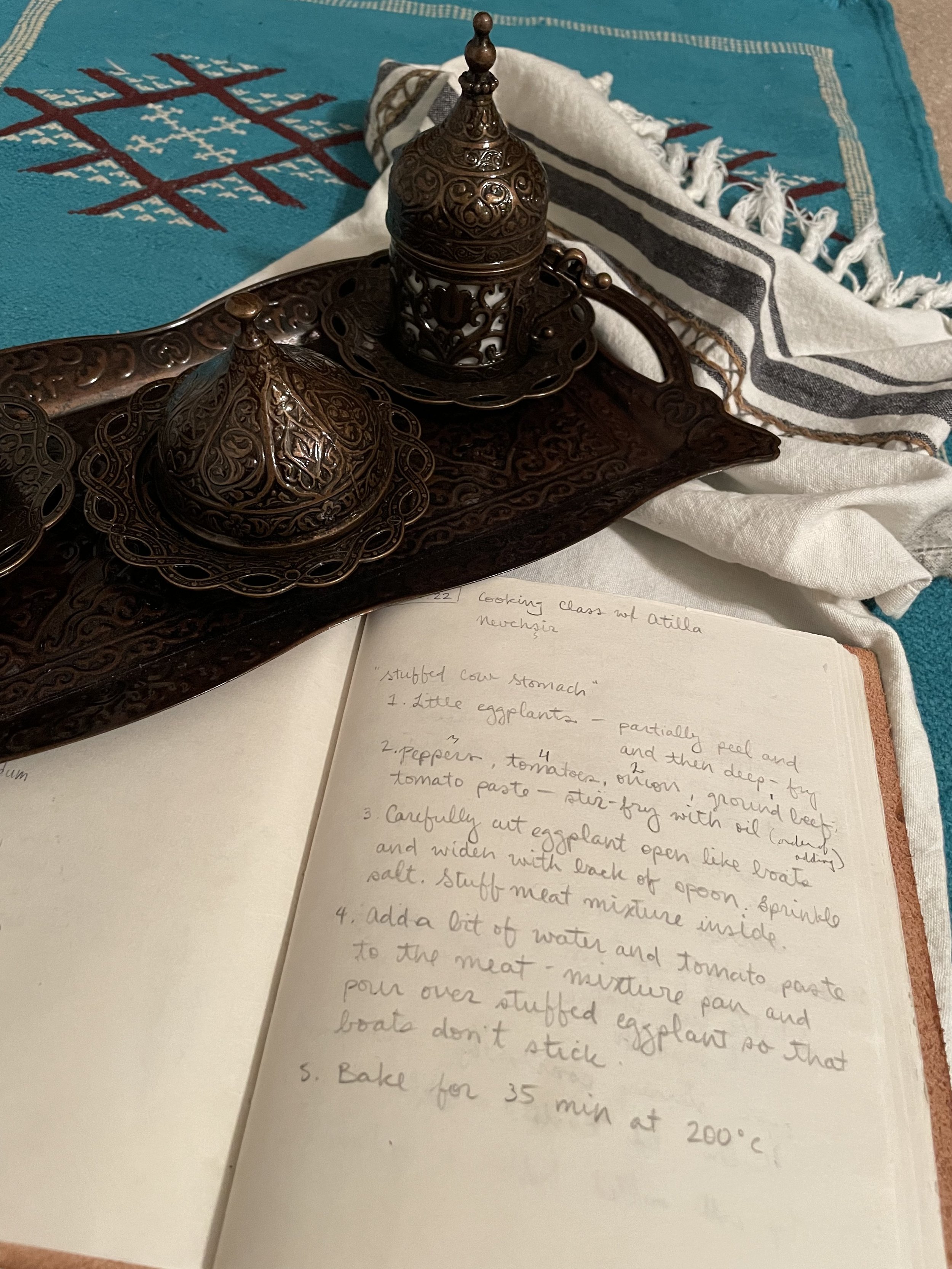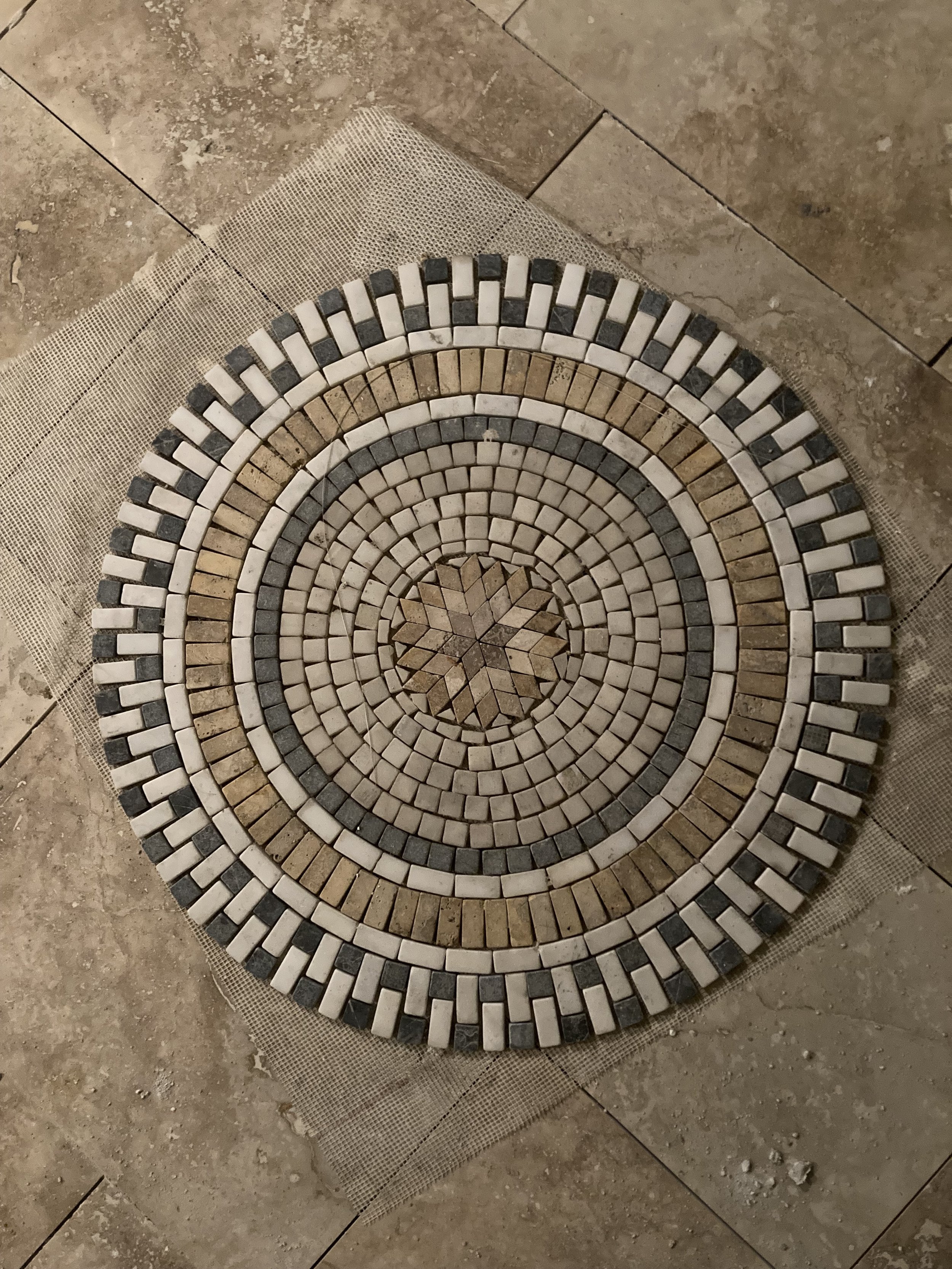How to Cook Eggplants—or, The Fun of Eschewing Restaurants
20 October 2022
Two weeks ago in Cappadocia, we got to cook with Atilla and his mother in a cave hotel. Atilla was the hotel manager, immensely skilled and earnest. It was only our third day outside the States, but he made a strong case for a return visit, if only to learn how to cook better with a matriarch.
Before we arrived at his cave hotel, Atilla found out that Leah was studying the late Roman/early Byzantine period. So he researched and prepped a grape dessert for us to make with his mother, in addition to a scrumptious, stuffed eggplant entree. (Turns out, my distaste for eggplant only extends to American ways of cooking it. We had it every day in a different form and I’m in love!)
Then we sat down for one of the best meals of the trip. A cucumber and tomato salad, a paper-like bread (a year-long supply of which is always made in September), ground-beef-and-veggie-stuffed aubergines on top of rice pilaf, and later, and two grape desserts.
Over supper, we learned that the testi kebabi (a beef stew sealed and cooked in a clay pot), though famous throughout the Cappadocian region, is not the normal cuisine of local folk. Typical meals, Atilla noted, are heavy on vegetables and starch, with meat playing a much smaller part of dishes.
“Testi Kebabi: From Wheel to Table”
Thanks to a kind guide who had a friend working in production pottery, I was able to observe the making of the pot that testi kebabi is cooked in. On our last night in Avanos, Leah and I tried the dish ourselves. It did not disappoint.











